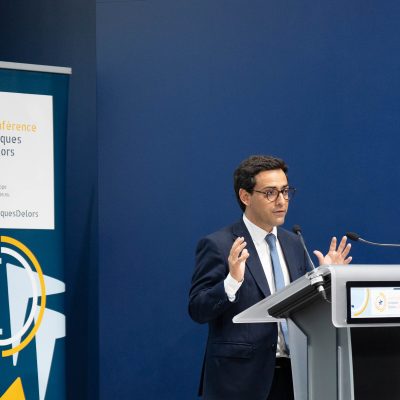Passer des mots aux actes
Analyse des scénarios et des dynamiques politiques possibles lors du décaissement des fonds de la Facilité européenne pour la relance et la résilience

Alors que l’année 2021 aura marqué le lancement de la Facilité pour la relance et la résilience (FRR) de l’Union européenne (UE), 2022 sera la première année complète de mise en œuvre de ce programme inscrit au cœur du plan de relance européen NextGenerationEU (NGEU). Au moment de la rédaction de ce papier, seulement cinq pays ont envoyé à la Commission leur première demande de paiement dans le cadre de la FRR, mais le volume de ces demandes de paiements risque d’augmenter considérablement dans les mois à venir et ne cessera d’ailleurs de s’accélérer jusqu’à fin 2026. Contrairement au préfinancement de 13 % versé en 2021, les paiements seront désormais conditionnés à la réalisation de « jalons» et de « cibles » qui concrétiseront les différentes étapes et objectifs du plan.
Les décaissements des fonds de la FRR auront lieu alors que l’idée d’étendre le NGEU, ou de l’utiliser comme modèle pour des futurs instruments d’investissement de l’UE, gagne du terrain dans les débats sur la réforme du cadre budgétaire de l’UE. Dans ce contexte, la question de savoir si la FRR est un « succès » ou non va gagner en importance d’un point de vue politique. Mais mesurer le succès de la FRR, alors que le programme fête seulement son premier anniversaire, est loin d’être facile. La première évaluation est prévue pour 2024. D’ici là, la réalisation des jalons et des cibles ainsi que le rythme des paiements constitueront les principaux indicateurs à même d’évaluer la performance de la FRR.
Ce papier examine la procédure de décaissement des fonds de la FRR. L’objectif est d’analyser les scénarios et les dynamiques politiques qui peuvent survenir dans le cadre de la validation des jalons et des cibles, de la soumission de demandes de paiement et de l’autorisation des décaissements de la FRR. Le papier commence par une discussion sur la conditionnalité et les principaux facteurs à prendre en compte lors de l’élaboration d’un régime de conditionnalité basé sur la performance. Dans un second temps, nous nous penchons sur les spécificités du régime de performance de la FRR, en distinguant trois phases : (1) la définition des objectifs de performance (nommés « jalons » et « cibles » dans le cas de la FRR), (2) les règles et procédures de demande de paiement, et (3) les règles et procédures d’approbation et de suspension des paiements. La description des règles générales, procédures et modèles communs est accompagnée d’exemples précis tirés de quatre plans nationaux de relance et de résilience (PNRR), à savoir ceux de la France, de la Grèce, de l’Italie et de l’Espagne. Nous nous interrogerons ensuite sur les dynamiques et scénarios possibles dès lors que la machine de décaissement des fonds de la FRR fonctionnera à plein régime. Enfin, nous terminerons par quelques réflexions sur la nature du régime de conditionnalité de la FRR.




